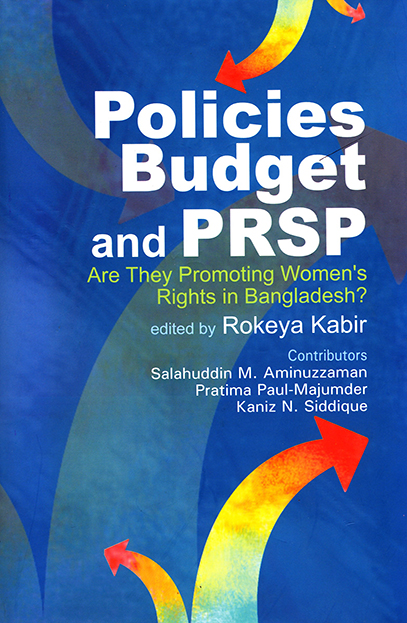
- Shop
- Gender Studies
- Policies, Budget and PRSP: Are They Promoting Women's Rights in Bangladesh?
Policies, Budget and PRSP: Are They Promoting Women's Rights in Bangladesh?
https://uplbooks.com/shop/9789845060387-policies-budget-and-prsp-are-they-promoting-women-s-rights-in-bangladesh-8319 https://uplbooks.com/web/image/product.template/8319/image_1920?unique=56f7a2e
| Language: English |
Tags :
Book Info
Violence and injustice against women are common phenomena in Bangladesh due to the traditional patriarchal socioeconomic structure and mindset. Bangladesh has significant constitutional provision and statutory laws guaranteeing human and fundamental rights and women’s equal rights. However, poor quality of governance and non-implementation of these national policies have undermined the constitutional pledges. Despite those constraints, women are increasingly getting involved and playing an important role in the national development process. It is essential that the use of women’s labor and time acquire higher efficiency to accelerate the development process of the country by their increased contributions. In addition, women deserve an equitable share in national resources as well as all opportunities by specific constitutional pledge and the state’s commitment to various international covenants and action plans. Promoting Women’s Rights by Changing Mindsets is an advocacy initiative by Bangladesh Nan Progati Sangha (BNPS), with support from the United Nations Democracy Fund (UNDEF), New York aims at identifying the gaps and to sensitize various actors like policymakers, public duty bearers and civil society as well as the international community to take up targeted interventions for increased status of women as a part of this initiative. The book captures a meaningful analysis of existing situation, and can therefore be used as a major instrument for campaigning to policy makers for the rights of women in Bangladesh. The anthology contains three parts addressing different aspects of women’s participation in the National Budget. All the anthologies conclude with a similar message that, as a crosscutting theme, women’s advancement and rights issues have to be addressed horizontally in the context of policies and strategies of all sectors and thematic areas. The message from this anthology would probably be that — “reformative laws do not bring about substantive changes in women’s position unless they address the strategic gender locations which determine the power relations between men and women in society and the state.”

Rokeya Kabir
Rokeya Kabir is a women’s rights activist and Executive Director of BNPS. She is currently the executive committee member of the Committee for Asian Women (CAW). She served as the gender focal person of the Global Committee of the Civil Society Groups on the World Bank. She was a member of the Women Advisory Panel to the President of Islamic Development Bank (IDB).


